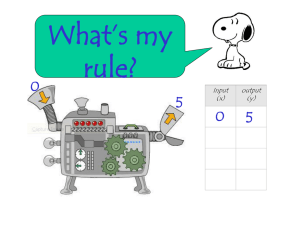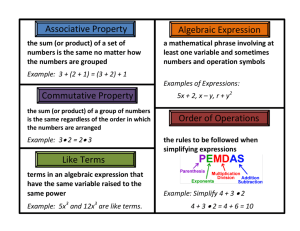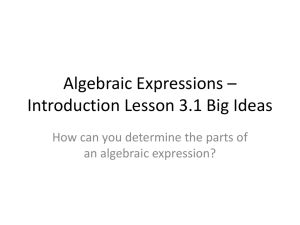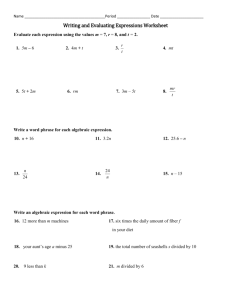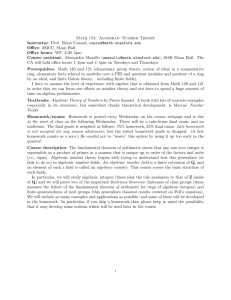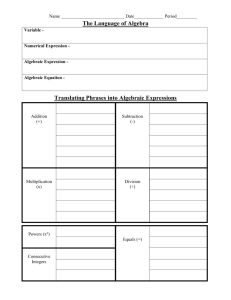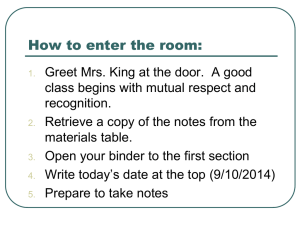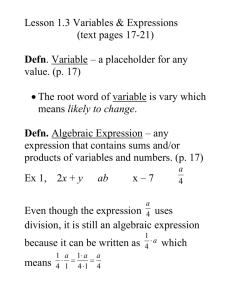Math 248A. Algebraic Number Theory Instructor: Prof. Brian Conrad
advertisement
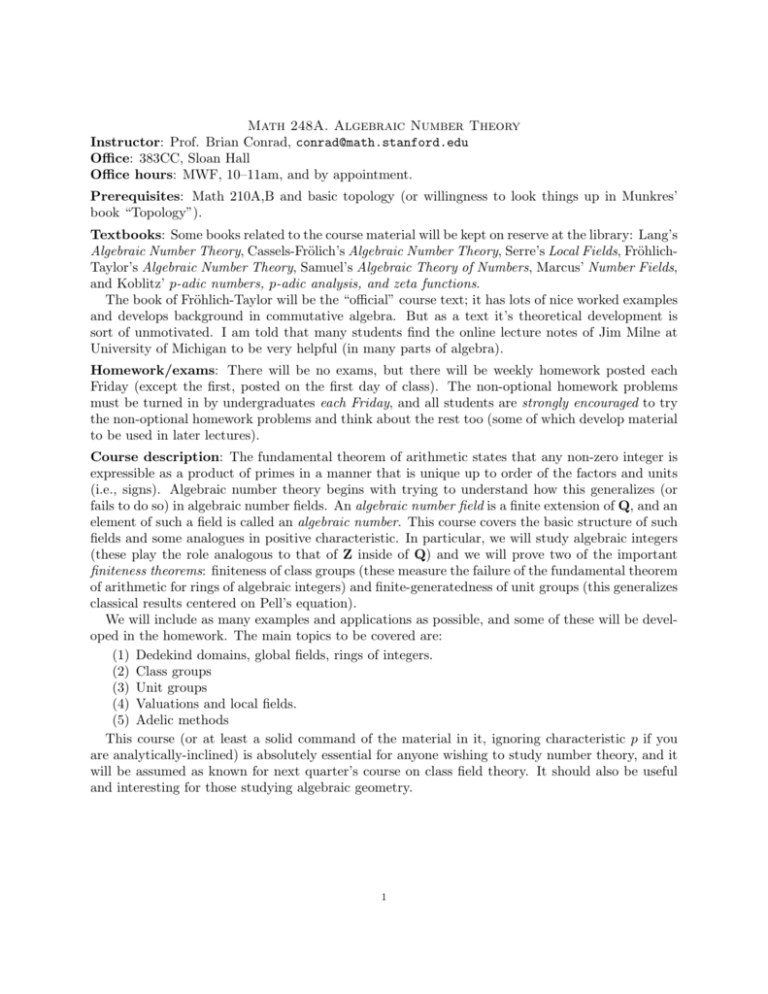
Math 248A. Algebraic Number Theory Instructor: Prof. Brian Conrad, conrad@math.stanford.edu Office: 383CC, Sloan Hall Office hours: MWF, 10–11am, and by appointment. Prerequisites: Math 210A,B and basic topology (or willingness to look things up in Munkres’ book “Topology”). Textbooks: Some books related to the course material will be kept on reserve at the library: Lang’s Algebraic Number Theory, Cassels-Frölich’s Algebraic Number Theory, Serre’s Local Fields, FröhlichTaylor’s Algebraic Number Theory, Samuel’s Algebraic Theory of Numbers, Marcus’ Number Fields, and Koblitz’ p-adic numbers, p-adic analysis, and zeta functions. The book of Fröhlich-Taylor will be the “official” course text; it has lots of nice worked examples and develops background in commutative algebra. But as a text it’s theoretical development is sort of unmotivated. I am told that many students find the online lecture notes of Jim Milne at University of Michigan to be very helpful (in many parts of algebra). Homework/exams: There will be no exams, but there will be weekly homework posted each Friday (except the first, posted on the first day of class). The non-optional homework problems must be turned in by undergraduates each Friday, and all students are strongly encouraged to try the non-optional homework problems and think about the rest too (some of which develop material to be used in later lectures). Course description: The fundamental theorem of arithmetic states that any non-zero integer is expressible as a product of primes in a manner that is unique up to order of the factors and units (i.e., signs). Algebraic number theory begins with trying to understand how this generalizes (or fails to do so) in algebraic number fields. An algebraic number field is a finite extension of Q, and an element of such a field is called an algebraic number. This course covers the basic structure of such fields and some analogues in positive characteristic. In particular, we will study algebraic integers (these play the role analogous to that of Z inside of Q) and we will prove two of the important finiteness theorems: finiteness of class groups (these measure the failure of the fundamental theorem of arithmetic for rings of algebraic integers) and finite-generatedness of unit groups (this generalizes classical results centered on Pell’s equation). We will include as many examples and applications as possible, and some of these will be developed in the homework. The main topics to be covered are: (1) Dedekind domains, global fields, rings of integers. (2) Class groups (3) Unit groups (4) Valuations and local fields. (5) Adelic methods This course (or at least a solid command of the material in it, ignoring characteristic p if you are analytically-inclined) is absolutely essential for anyone wishing to study number theory, and it will be assumed as known for next quarter’s course on class field theory. It should also be useful and interesting for those studying algebraic geometry. 1
